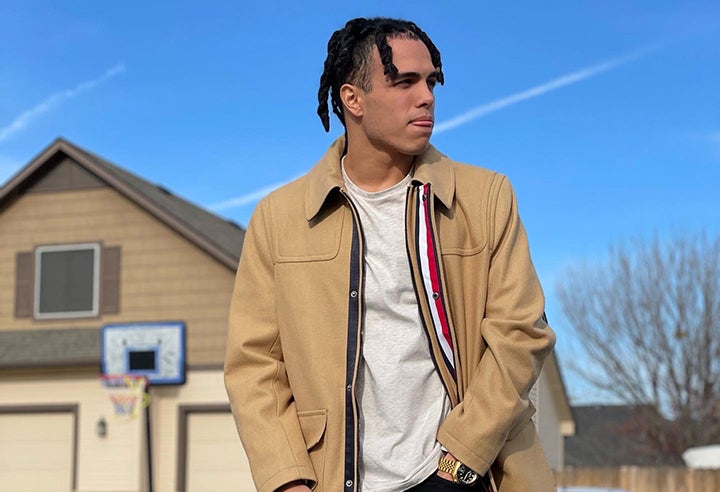Social work isn’t what you might think, and the students pursuing social work degrees through Boise State’s School of Social Work are as different as their passions and goals for their lives and futures. That’s a very good thing – the challenges they face in their internships, graduate assistantships and coursework show just how needed their perspectives and skills are.
Here’s a sneak peek at the “social workers” of the future (spoiler alert: The term hardly captures the range of what they’re interested in – and what they might accomplish.)
Lucas Petersen
Second-year master’s student

Lucas Petersen was a math-focused, engineering-inclined track and field athlete at Idaho State University who transferred to Utah Valley University to graduate with a bachelor’s in psychology.
He had the smarts for math and engineering. What he didn’t have was passion. He realized that he liked relationships – and that lots of the significant people in his life had had mental health struggles.
“I took a look at myself and thought, ‘I could leave a mark in the world.’
“I knew I wanted to be a therapist.”
He applied to social work, counseling and marriage and family therapy programs throughout the Intermountain West. Boise State’s social work program rose to the top, he said, based on its reputation, the intensity of the curriculum and its national standing.
“I wanted some strength to the name.”
The first year was fast and full. The second year is more manageable. And all of it has been satisfying.
“The first year is pretty intense and the class load is pretty crazy,” Petersen said. “Now it feels like we’re here to learn, not just being graded.
“I don’t really get stressed, but it feels like it’s very natural,” he said. “It’s been very good.”
His internship is at Hand in Hand Behavioral Health, a community clinic that offers therapy and peer support. Under supervision, he has a caseload of clients, 20 people whom he sees for hour-long sessions, and is getting valuable experience in counseling and case work.
“Boise State really focuses on the internship portion of the degree,” he said. “As an intern, you have that safety net. They’re setting us up to succeed. They want us to grow.”
“It’s very comforting to know I have all these tools and resources.”
He tells clients he’s a student, but that he is also an expert in his field.
“I let them know we’re going to build and learn from each other.”
He’s biracial … “Who I am and how I have my hair doesn’t define me as a professional.”
Petersen envisions going into private practice and is planning to open his own office with friends in Georgia.
Parts of the country, including Idaho, can be tough for biracial people like Petersen. He has appreciated that the environment fostered by faculty members, classmates and those he works with through his internship have made acceptance easy.
“It’s such a family environment,” he observed. “It’s such a more-than-classmate feel. We hang out outside of class. The teachers care about us learning and not so much just grades. Every single teacher is engaged in us learning. They’re so proactive with us.”
When Petersen describes his experience, it’s hard not to think of Maslow’s hierarchy of needs and self-actualization, the highest level in which personal potential is realized.
“When you’re doing what you love, every day just gets better,” he said. “Feeling yourself master your craft, gaining knowledge, feeling myself grow into the person I was meant to be.”